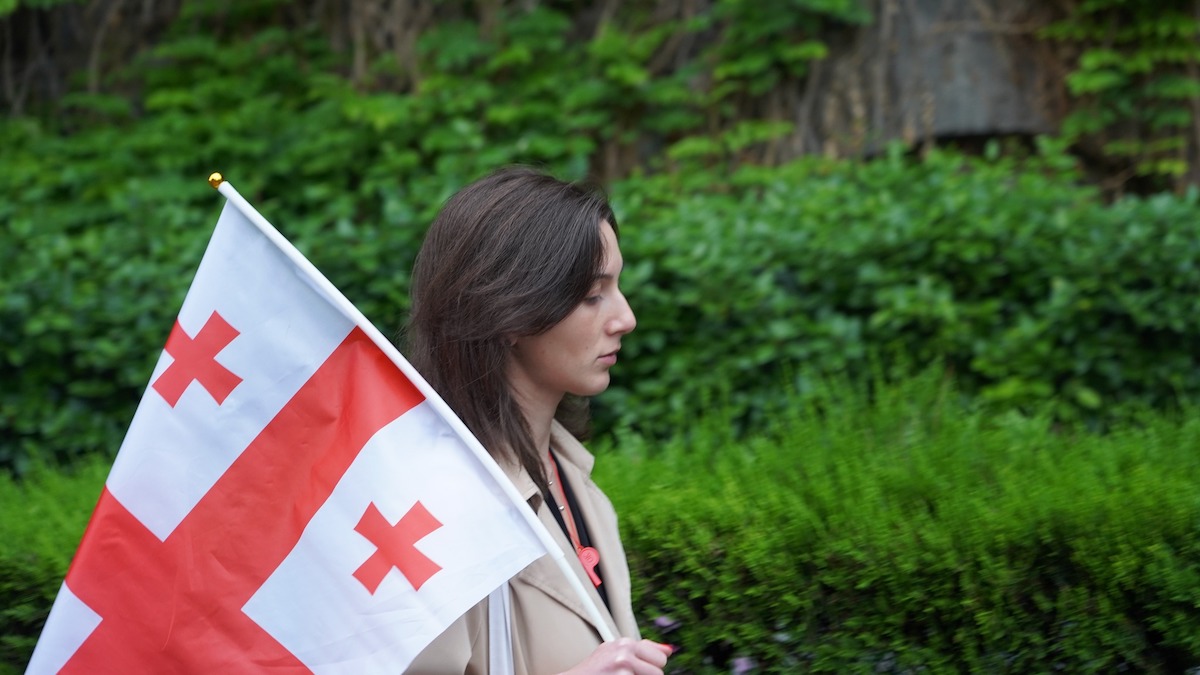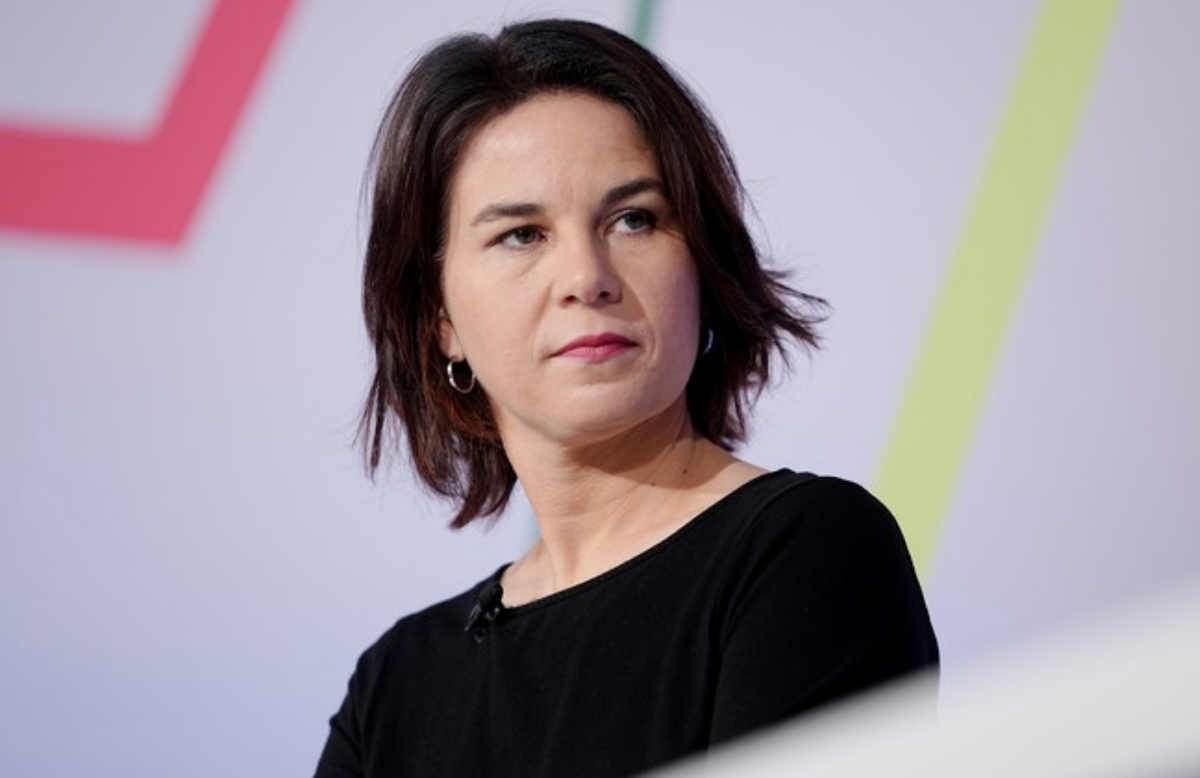Lavrov's Deputy: 'The West wants to repeat the Maidan scenario in Georgia'
Russian FM deputy on West and Georgia
The deputy foreign minister of Russia, Mikhail Galuzin, stated in an interview with TASS that the West is attempting to implement a new “Maidan” scenario in Georgia by October in order to create another hotspot of tension near Russia’s borders.
Like the ruling party “Georgian Dream,” the Russian high-ranking official alleges that the West is trying to “pressure” a sovereign state.
“We see attempts by Westerners to escalate the situation in Georgia in the context of the upcoming parliamentary elections in October. We do not exclude that the goal is to try to implement a ‘Maidan’ scenario of a change of power in order to create yet another hotspot of tension near Russia’s borders,” he said.
Galuzin also pointed out that foreign ministers of Lithuania, Estonia, and Iceland opposed the adoption of the “foreign agents” law in Georgia. Like Georgian prime minister Irakli Kobakhidze, he also views all this as “interference in internal affairs”:
“All this is repulsive examples of neo-colonial practices of imposing one’s will on countries whose sovereignty they are trying to limit.”
Earlier, Kremlin propagandist and so-called “ideologist of the Russian world” Alexander Dugin published a post on his Telegram channel titled “Has Georgia Gotten Rid of Foreign Influence?” in which he writes:
“Double standards in the best democratic traditions. Against the backdrop of the American one, the Georgian law looks like a fine for smoking in a public place. In Georgia, there are 25,000 non-governmental organizations operating with a population of 3.7 million people, or one organization for every 148 inhabitants!
In other words, literally every Georgian household has a foreign agent sitting in it, teaching them how to live in a new Western manner. Moreover, the law passed does not prohibit them from doing so, but only requires them to properly identify themselves and pay a little tax.”
On June 3, the сhairman of the Georgian Parliament, Shalva Papuashvili, signed the “foreign agents” law. The law will come into effect on June 4, and organizations receiving foreign funding will have 60 days to register on the designated electronic portal and declare their finances for 2023. The text of the law has already been published.
Prime minister of Georgia Irakli Kobakhidze stated at a government meeting that by adopting this law, Georgia has secured its sovereignty and safety. Additionally, Kobakhidze noted that over the past two months, there has been a lot of disinformation spread about the law, and artificially inflamed passions.
Kakha Kaladze, the general secretary of the ruling party “Georgian Dream” and mayor of Tbilisi, warned that if organizations do not comply with the new legislation, it could ultimately lead to the cessation of their activities.
What should be known about the “foreign agent” law in Georgia?
● The law on “Transparency of Foreign Influence” was adopted by the ruling party “Georgian Dream” in the third reading on May 28.
● The Georgian authorities passed this law despite large-scale protest demonstrations, persistent calls from Western partners, and a strict opinion from the Venice Commission of the Council of Europe.
● After the law was passed, the U.S. began discussing sanctions against the government of the “Georgian Dream.” On May 23, Secretary of State Antony Blinken announced sanctions against members of the Georgian government, as well as financial sanctions.
● The EU is also considering retaliatory measures against the Georgian government.
● The main argument of the Georgian authorities is that similar laws exist in the United States and some European countries, including France. According to the “Georgian Dream,” each country has the right to protect itself from foreign influence and demand transparency from its organizations.
However, comparing the law adopted by the “Georgian Dream” with the American or European ones is incorrect because:
The American law FARA (Foreign Agents Registration Act), to which the “Georgian Dream” appeals, was adopted in 1938, before World War II, to protect the American population from Nazi propaganda. Neither then nor now does FARA apply to U.S. allies and friendly countries.
As for the law “On the Influence of Foreign States,” which operates in France, there is a specific list of countries to which this law applies and whose increased influence France considers a threat (Russia, China, Turkey, Iran). At the same time, it is particularly noted that this law does not apply to EU countries. In the Georgian law, there is no such provision, and consequently, this law directly affects organizations funded by friendly and partner countries of Georgia – the U.S. and the EU – through which democratic processes are developing in the country.
Furthermore, in FARA and some other laws of this type, it is stipulated that they do not apply to media or NGOs, only to lobbying organizations. There is no such provision in the law adopted in Georgia.
Overall, the Georgian law is similar to the Russian one, which also primarily affected the media and the non-governmental sector. As a result, all non-governmental and media organizations not controlled by the Kremlin were closed in Russia.
It is also important to note that the law adopted in Georgia contradicts EU legislation. When a similar law was adopted in Hungary, it was annulled by the European Court of Human Rights because it was directly aimed at silencing the media and persecuting NGOs.
Establishing such restrictions on friendly partner countries raises concerns that Georgia is changing its foreign policy vector. These concerns are voiced unanimously today by independent Georgian experts, politicians, and representatives of civil society.
The main slogan of the mass protests against the “foreign agent” law is “Yes to Europe, No to Russia!“
The law will come into effect, probably by September, when a special register is ready, in which organizations-“foreign agents” must register.
All organizations, more than 20% of whose funding comes from foreign grants, will be declared foreign agents. In Georgia, a small and poor country, this is almost an absolute majority of non-governmental organizations.
For 33 years of independence, with the help of the EU and the U.S., vital projects have been implemented in all spheres of the country – from healthcare and infrastructure to strengthening civil society.
Now, many media and NGOs are refusing to register as foreign agents because such a label is offensive. “We work honestly in our country, why should we be called ‘carriers of the interests of a foreign state’?” they ask.
Some small organizations have already announced their imminent closure or the suspension of projects. For example, the non-governmental organization Fair Trees Foundation announced that, due to the adoption of this law, the project to open a free children’s dental clinic is being suspended.
Animal rights activists have also made a statement that almost all animal protection organizations in Georgia exist on foreign grants, and if this law comes into force, a significant portion of them will be closed.
Russian FM deputy on West and Georgia




















